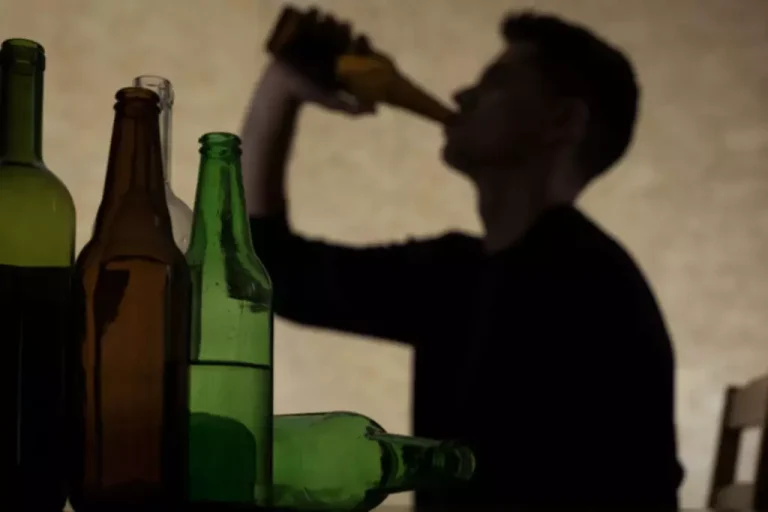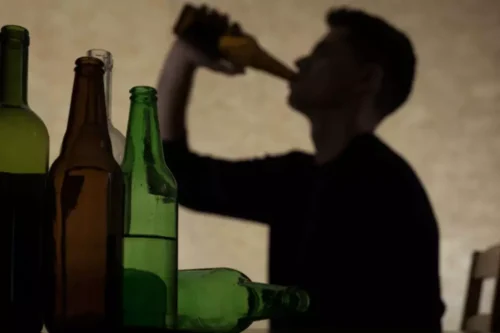
He is a Captain in the Army Reserves and has 15 years of military service. Alcohol and drug addiction is a chronic illness and requires ongoing maintenance and care. Rehab gives you the tools you need to reduce the risk of relapse. There is also no way to determine your tolerance level going back to rehab after weeks, months, or years of non-use. Despite being a common aspect of recovery, relapses are dangerous. This is because of the changes that occur in the body once you stop using substances.
- Submit your number and receive a free call today from a treatment provider.
- Once such a consummate urbanite that you half expected to see a pigeon on his head and his pockets stuffed with takeout menus, today he looks every inch a suburban dad, in his white lace-up Vans, olive jeans, long-sleeve shirt.
- However, it is never too late to recover from a relapse, so don’t be discouraged if you think you’ve gone too far back into your addiction.
- For a more complete description of the study design and collection of data see Polcin et al. (2010), Polcin et al. (in press) and Polcin, Korcha, Bond, Galloway and Lapp (in press).
What Defines a Relapse?
- Many people lapse or relapse, and if you think of each attempt at sobriety as a means of getting closer to your end goal — a lesson in your cumulative recovery learning, so to speak — this setback won’t be in vain.
- Peer groups, such as Narcotics Anonymous (NA) or SMART Recovery, provide a sense of community and shared experience, which are important for maintaining motivation and commitment to sobriety.
- A strong support network is for individuals recovering from cocaine addiction.
- By Geralyn Dexter, PhD, LMHCDexter has a doctorate in psychology and is a licensed mental health counselor with a focus on suicidal ideation, self-harm, and mood disorders.
The drinking status of the social network was calculated by multiplying the amount of contact by the drinking pattern of each network member, averaged across the network. The same method is applied to obtain the drug status of the network member; the amount of contact is multiplied by the pattern of drug use and averaged across network members. Our programs at Nova Recovery Center are firmly grounded in evidence-based treatments. This means that the therapies and modalities we use are scientifically proven to be effective in treating addiction.

Assessing the Impact of the Community Context

The important part is to reestablish contact and let them know you’re struggling. By taking proactive steps and understanding the stages of relapse, you and your loved ones can prevent a relapse from occurring or becoming dangerous. According to the National Institute on Drug Abuse (NIDA), relapse rates for substance use disorders are 40-60%. The addiction recovery process after a relapse might be easier than early recovery. Your detox after relapse depends on how long your relapse has occurred and how much you used. Remember that addiction is often the result of coping with an underlying mental health issue.
Avoid Triggers

Recovery is lifelong, and a relapse can happen at any time, even after years of not drinking. Contact us today to find out which program might be right for you, or to begin the process of arranging for treatment. If you’re considering reentering a rehabilitation facility for concerns related to relapse or entering for the first time, and you have any questions or concerns, contact us at Vertava Health today. If you determine that you have experienced a true relapse, reentering rehab may be your best option.
Primary Outcomes
However, samples sometimes had small to modest sizes, and insufficient statistical power may have contributed to a lack of strong findings. Conversely, the naturalistic studies reported large sample sizes but had more variability in outcome measures. Nonetheless, findings from the randomized trials and naturalistic analyses appeared to complement each other. We described the effectiveness of the service—that is, how well the outcomes of the studies met the service goals. We compiled the findings for separate outcome measures and study populations, summarized the results, and noted differences across investigations.

What Is A Relapse Prevention Plan?
Less-intensive treatment may be an option if this is your first relapse and you are in good physical and mental health, are not at risk for severe withdrawal, and have a sober support system in place. Your treatment team can help you decide whether inpatient, outpatient, or other treatment options are more appropriate for you. Drug and alcohol rehab centers like First Step Behavioral Health can help you learn how to successfully maintain long-term sobriety and teach you relapse prevention skills that can stop this from occurring again. If the emotional and mental stages of relapse are not corrected, they will lead to the final stage of relapse. When people think of a drug and alcohol relapse, this is what they picture.
All of these practices can help recovering addicts manage stressful situations once the treatment program has ended. Addiction is a lifelong journey and it’s important to take action to stay on the road to recovery. Mental signs include thoughts about using cocaine again, romanticizing past use while ignoring its negative consequences, and making plans to acquire the drug. This internal conflict leads to lying about their intentions or desires regarding substance use.

These strategies can be learned through relapse prevention therapy – a cognitive-behavioral approach that identifies and addresses high-risk situations for relapse and assists individuals in making the appropriate behavioral changes. Despite the enormous need for housing among the offender population, SLHs have been largely overlooked as a housing option for them (Polcin, 2006c). This is particularly concerning because our analysis of criminal justice offenders in SLHs showed alcohol and drug outcomes that were similar to residents who entered the houses voluntarily. These measures were taken from the Important People Instrument (Zywiak, et al., 2002). The instrument allows participants to identify up to 12 important people in his or her network whom they have had contact with in the past six months.
Returning to rehab after an alcohol relapse may seem disheartening, but seeking treatment can open the doors to hope and healing. If you or a loved one has relapsed—or you’re simply ready to learn more about your options—AAC can help. Many different philosophies about recovery and relapse exist, often with opposing tenets, which can leave you confused about which is correct. For some, relapse is viewed in a negative light and indicates weakness.
